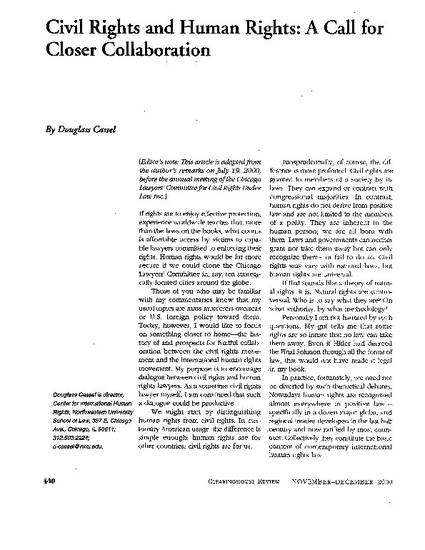
Those of you who may be familiar with my commentaries know that my usual topics are mass murderers overseas or U.S. foreign policy toward them. Today, however, I would like to focus on something closer to home-the history of and prospects for fruitful collaboration between the civil rights movement and the international human rights movement. My purpose is to encourage dialogue between civil rights and human rights lawyers. As a sometime civil rights lawyer myself, I am convinced that such a dialogue could be productive.
We might start by distinguishing human rights from civil rights. In customary American usage, the difference is simple enough: human rights are for other countries; civil rights are for us.
Jurisprudentially, of course, the difference is more profound. Civil rights are granted to members of a society by its laws. They can expand or contract with congressional majorities. In contrast, human rights do not derive from positive law and are not limited to the members of a polity. They are inherent in the human person; we are all born with them. Laws and governments can neither grant nor take them away but can only recognize them-or fail to do so. Civil rights may vary with national laws, but human rights are universal.
If that sounds like a theory of natural rights, it is. Natural rights are controversial. Who is to say what they are? On what authority, by what methodology?
Available at: http://works.bepress.com/douglass_cassell/26/
